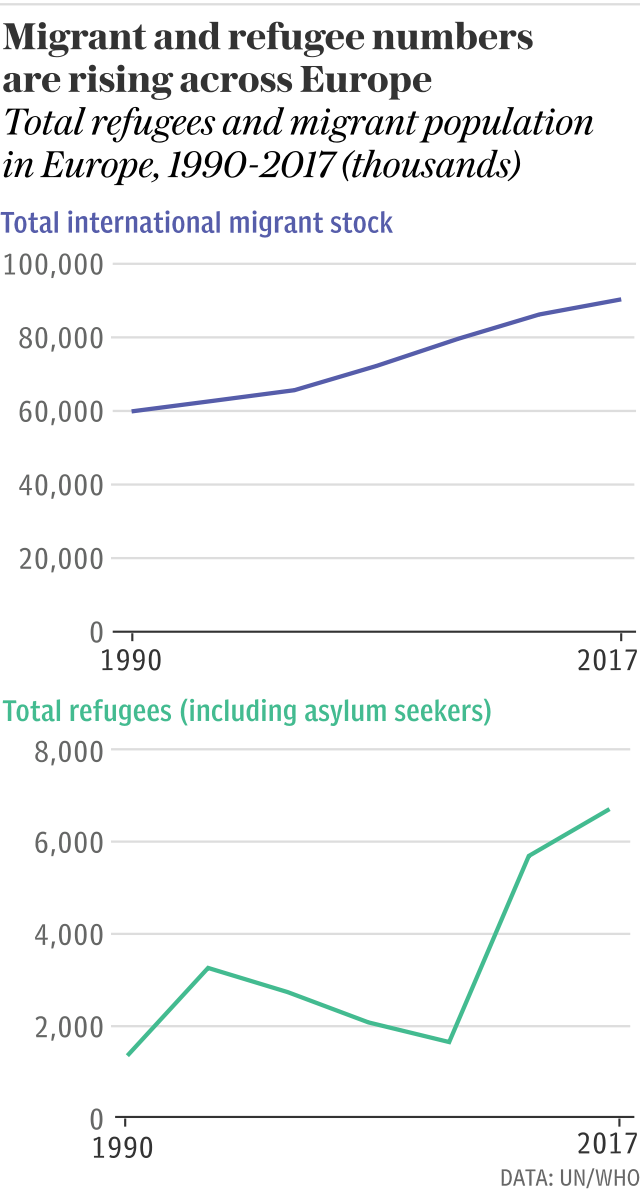National Crime Agency warned of Zeebrugge illegal migrant threat

The National Crime Agency (NCA) warned last year that Belgium was the new frontier in the battle against illegal immigration as people smugglers moved to evade tougher security elsewhere along the coast.
Tom Dowdall, the NCA’s deputy director, said in October that improved security in France meant the smugglers were targeting easier routes through ports like Zeebrugge from where the 39 suspected migrants who died on Wednesday were picked up.
The NCA also warned there had been a sharp rise in the number of migrants using “higher risk methods of clandestine entry” to the UK such as refrigerated HGVs and containers as well as the small boats that have been used in increasing numbers this year to cross the Channel.
Belgian immigration minister Theo Francken has urged Britain to shore up its border controls amid a surge in migrants trying to smuggle themselves across the channel from Belgium.

He said Britain's loose ID controls and booming black market were proving a major pull factor for illegal migrants, many of whom were living rough in Belgium after being denied asylum in Germany.
"We need a UK-Belgium bilateral as soon as possible because the problem is really increasing and Britain has to help us out," said Mr Dowdall.
Yesterday the office of Zeebrugge's harbour master said they found migrants trying to stowaway "every day" at the Belgian port, which has dozens of ships sailing to UK ports each day.
David Wood, a former director general of UK immigration enforcement, told the Telegraph that ports like Zeebrugge offered the crime gangs potentially easy pickings:
“It’s displacement. Zeebrugge is a freight and container port which isn’t be geared up to detect migrants. It’s organised crime finding a route that is guaranteed success and where you can charge premium rates,” he said.
The number of potential victims of human trafficking reported to the National Referral Mechanism (NRM) - the programme to identify and support victims including those who came to the UK as a result of people smuggling - rose by 36 per cent last year to 6,993 cases.
The NCA, which runs the NRM, said: “The past year has seen increasing use of higher risk methods of clandestine entry. These include the movement of migrants (including children) into the UK in containers, refrigerated HGVs and small boats, at a high risk to life of those migrants smuggled.”
The NCA said crime gangs which had been in competition were also now more coordinated. "Our area of concern is the fact that organised crime groups are often basing themselves or leading migrants into vehicles in Belgium rather than France,” said Mr Dowdall.
“They then move them across the Belgium-France border and then they make their way to the Channel ports. Part of the reason why they do that is part of the sophistication of how they look to operate.
“They think moving from country to country makes it more difficult for law enforcement to coordinate their activity."
Mr Francken said the pull factor of Britain was a "common problem, not only a Belgian one" and was fuelled by our huge black market exploiting migrants.
"They all want to go to your country because you don't have identity cards, your black market is very lucrative, you have a lot of English speaking migrants already from those communities,” he added.
"It's a real big push factor your country, the British way of life. I like a lot the Brits but now they need to help us and they said they will do that, but we need a concrete arrangement."
Two reports by David Bolt, chief inspector of borders and immigration, has warned chronic shortages of staff at smaller ports on the south and east coast of England had left them open to illegal immigrants.
Border staff warned they were so stretched they could not check trailers for migrants at the same time as dealing with the flow of tourists and travellers.
The Government says it is recruiting an extra 1,400 border staff. Yesterday Priti Patel, the Home Secretary, indicated she was willing to consider tougher sentences for human traffickers after Labour MP John Woodcock called for maximum jail terms to be raised to life.

 Yahoo News
Yahoo News 
